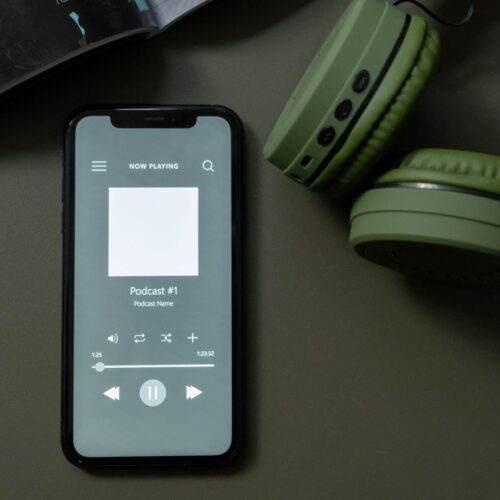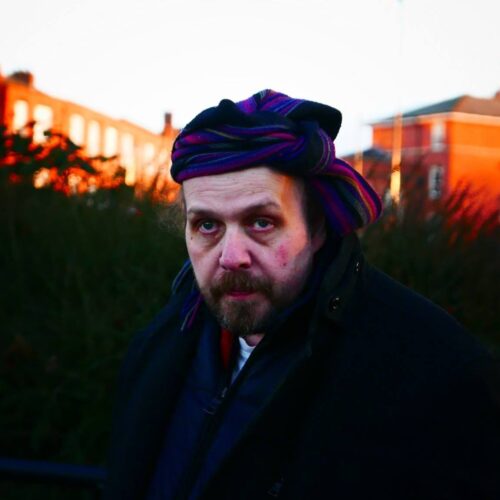
Necessary conductors
 It is too easy to ask if an orchestral conductor is really necessary, but we often do. We assume the functional operation is simply to act like a human metronome in order to keep the players together. Watching the leaders of those impressive dance bands of the 1930s, anyone might be forgiven for supposing the careless swinging of a baton while smiling down on the dancers gliding over the hotel ballroom floor was no more than a carefully rehearsed charade. And yet to a careful listener, there is a startling precision about the delivery that hides the meticulous rehearsal of carefully crafted arrangements that, like all great showmanship, is made to look so easy.
It is too easy to ask if an orchestral conductor is really necessary, but we often do. We assume the functional operation is simply to act like a human metronome in order to keep the players together. Watching the leaders of those impressive dance bands of the 1930s, anyone might be forgiven for supposing the careless swinging of a baton while smiling down on the dancers gliding over the hotel ballroom floor was no more than a carefully rehearsed charade. And yet to a careful listener, there is a startling precision about the delivery that hides the meticulous rehearsal of carefully crafted arrangements that, like all great showmanship, is made to look so easy.
It is worth looking at old film of the great band leaders – Jack Hylton, Lew Stone and his famous vocalist Al Bowlly, Jack Payne at the London Hotel Cecil, Jack Dorsey, the star of the Astoria ballroom in Charing Cross Road, Billy Cotton (a first rate amateur footballer for Bretford!) and Jack Ambrose whose band played at the May Fair in Berkeley Square. There is a shrewd skill and inner meticulousness behind those casual exteriors. Victor Silvester was a winner of the World Ballroom Championships before forming his own dance orchestra to play for them, and Geraldo (whose real name was Gerald Bright) provided backing for many singers he helped to fame, as well as his talented composer-arranger Wally Stott, eventually known as Angela Morley (Hancock’s tune?). Those band conductors were the inspiration behind a highly disciplined fastidiousness.
It was only after composers began to produce music for larger ensembles during the 19th century, increasing the size of the orchestra and creating added complexities, that the need for an overall coordinator became necessary. In earlier classical times, the conductor was simply a time beater, either duplicating at the keyboard much of what the orchestra was performing or, like poor old Jean-Baptiste Lully, pounding the floor with a heavy pole to keep the players together. It was during the performance of a special Te Deum Lully had written to celebrate King Louis XIV’s recovery from illness that he struck his foot with the pole and died from the gangrenous abscess that developed. Later, the hand held baton became a safer option, yet the director at the keyboard, or with the noisy stick, was almost always the composer.
The 19th century invented ‘composer-conductors’ – Berlioz, Spohr, Mendelssohn and Wagner – and succeeding them came those who were not necessarily composers, but who decided they knew how music should be ‘interpreted’ – perhaps acceptable from Wagner, who published accounts of how to perform Beethoven’s symphonies. But not everyone during the next decades brought such talent to the concert hall. Many just enjoy the choreographic power of wielding a baton and moving to the shape of the music, directing 80 players and wallowing in the subsequent avalanche of applause!
The relatively safe classical and romantic repertoire – especially well-known music of the 18th century – hardly needs a conductor. Professional orchestral players have been performing that music for years, some pieces built into their history. The guest conductor (and most orchestras have them now) spends little time with a band. They fly in and out barely knowing where they are or who they are conducting, and perform as celebrities, largely to fill seats at the concert.
In many ways, the skills needed by the conductor of an amateur orchestra or choir, or youth orchestras, are far more demanding, for there things can actually go wrong. Presence of mind is needed at the helm to provide a safety net for the errors – many of which can be quite unexpected. Amateur players can be nervous where professionals rarely are. Professionals know how to survive on little rehearsal. Amateurs can’t, and their conductor’s reassurance is vital.
The saving grace is that the conductor of an amateur orchestra, like those of the great dance band era, knows the players well and is always there for them. Haydn faced his Esterhazy orchestra for 30 years, and grew wise to the characteristics of his players, recognizing their strengths and weaknesses, knowing those unlikely to be sober and those who are not too proficient. A worthy conductor is one who knows the music and the players well – and who can compose and play too.






How right Patric is about the dance band leaders and their musicianship. Billy Cotton was a fixture in our household and Victor Silvester was highly regarded by my parents’ generation and hooted at by mine for his uptight mangled vowels and rictus smile – but could his band play. Strict tempo was a very accurate description – they were as tight as a drum and their players were virtuosos particularly their pianist. I had cause to listen to them again when I bought some CDs of the forties bands to play at my 60th. It was a serious event – I dressed as Captain Mannering……. I could go on but perhaps better not.
Patric’s remarks about conductors of classical repertoire strike a chord. I have sung at a number of choral events where the orchestra ignored the conductor and looked steadfastly at the leader.
Patric’s bouquet tossed in the direction of amateur conductors and choral trainers is much appreciated. We do have to nourish and support our choirs and try to explain the composers’ intentions (to say nothing of all the behind the scenes work of running a choir). Do we do it for the applause? I don’t think so for the most part. I think we amateur conductors feel that it is a privilege to take part in the performance of great works of art however less than perfect our performances might be. And now and then they can be very imperfect!.
One thing is for sure – if you conduct or perform in a piece you get to know it in a way which is different from and I feel more thorough than just listening to it however carefully and critically. And you get to enjoy pieces you might otherwise have passed by as I am finding with Gorecki’s Miserere and the Glagolitic Mass at the moment. And it certainly helps your composing.